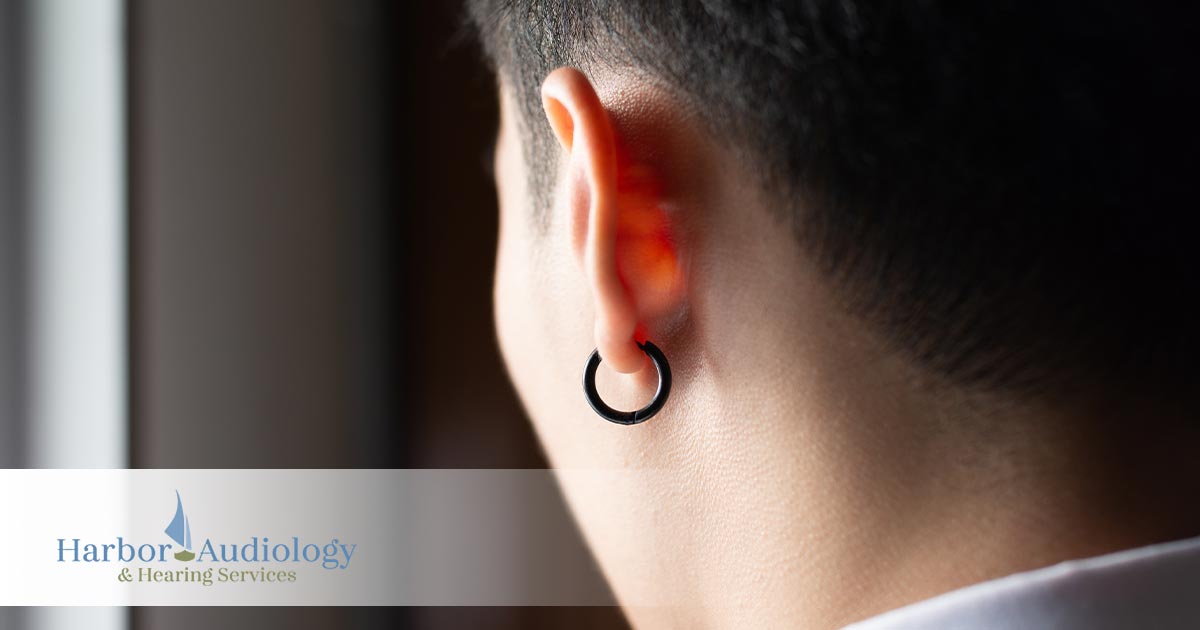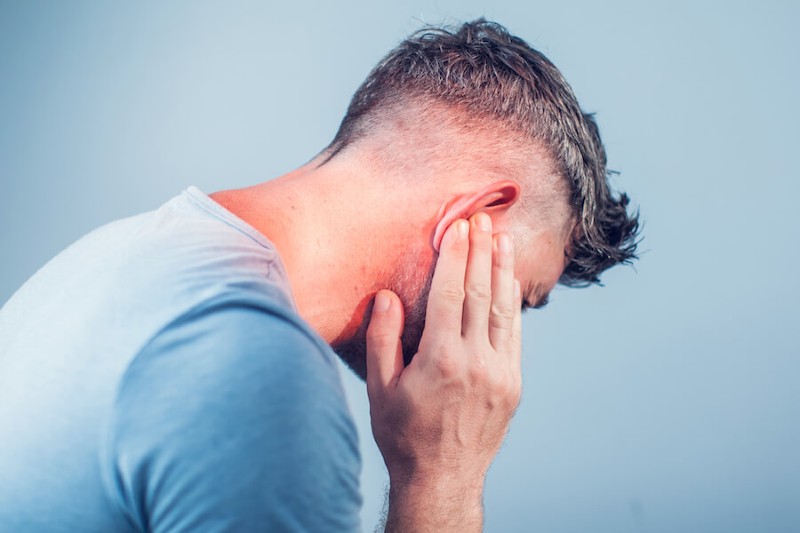
10 Causes of Ringing in Your Ears
Reviewed by Dr. Porter on January 23, 2021
Ringing in your ears, also known as tinnitus, is the perception of sound when no external source of sound is physically present.
It is always best to consult an audiologist when you experience ringing in your ears for more than a few hours, or without a discernible cause such as: taking a transcontinental flight, attending a loud concert, or being present near an explosion. Only your audiologist will know for sure what is leading to this ringing. In this article, we will list 10 potential causes of ringing in your ears so you can examine important parts of your personal history to bring to the attention of your hearing professional.
What Does Ringing in Your Ears Mean for Your Health?
Ringing in your ears isn’t a disease but rather a symptom of other conditions. Sometimes ringing in your ears means that there has been some kind of damage to the sound-sensing cilia in your middle ear. Alternatively, a clicking sound in your head can be caused by a circulatory problem or rheumatoid arthritis. Ringing in your ears can also result from damage to the nerve pathways from your ears to your brain.
Effective treatment begins with an accurate diagnosis. Let’s take a look at the 10 most common causes of ringing in your ears.
10 Common Causes of Ringing in Your Ears
Although every case of tinnitus is a little different, there are a few conditions that are relatively common causes of ringing in your ears. We will consider them first.
Exposure to loud sounds- Whether it’s hearing a single loud explosion, constant exposure to loud noises at work, or on a shooting range, louds sounds can cause lasting damage and ringing in your ears. This kind of tinnitus can be either temporary or permanent.
The reason hearing a very loud sound causes tinnitus has less to do with the decible level of the sound and more to do with the changes in air pressure it causes inside your ear. There are tiny hairs called cilia that move as sound travels into your ear. If the sound is so forceful that they break, they may start sending random signals to your brain even in the absence of any external sound.
Age-related hearing loss- Most people begin losing their ability to hear higher pitches around age 60. Your nervous system may try to compensate for loss of the ability to hear certain frequencies by making you hypersensitive to others, giving you the sensation of ringing in your ears.
Colds, flu, and ear and sinus infections- It is not unusual to experience a ringing, whooshing, clicking, or thumping sound when you have a cold, flu, or sinus infection. Pressure on your sinuses can cause ringing in your ears.
Buildup of earwax- Too much “gunk” in your ear canals can cause a loss of hearing and ringing in your ears. You shouldn’t try to remove it on your own, however, as trying to squeeze it out with a Q-tip can drive it farther into your ear canal. Instead, speak with an audiologist to learn about safe and effective methods of removing excess earwax.
Certain medications- There are many drugs that can cause ringing in your ears such as: aspirin, over-the-counter pain relievers, diuretics, certain antibiotics, and many antidepressants. When you stop taking the drug the ringing in your ears usually goes away. Please note that you should not stop taking a prescribed medication without first consulting your doctor.
Some of the less common sources of ringing in your ears include:
Circulatory problems- HHardening of the arteries that lead to your brain can cause you to hear your heartbeat in your head, and high blood pressure makes the problem worse. A condition called arteriovenous malformation (AVM), which is an issue of the way arteries and veins connect, can lead to ringing in one ear.
Meniere’s disease- This condition of fluid imbalance usually starts in one ear but may eventually involve both ears. It causes ringing in the ears and also problems with balance.
Eustachian tube dysfunction- An unhappy side effect of losing a lot of weight can be a permanent expansion of the tube leading from your throat to your ears, the Eustachian canal. This problem can also result from pregnancy or radiation therapy.
Head and neck tumors- Tumors near, or on, the nerves connecting the ears to the brain can cause tinnitus in some cases.
Muscle spasms in the ear- Some neuromuscular conditions like multiple sclerosis (MS) can cause a feeling of pressure in the ears, or a ringing in the ears.

When Should You See a Doctor for Ringing in Your Ears?
There are three situations in which ringing in your ears is part of a set of symptoms that require immediate medical attention:
- If you ever lose your hearing suddenly without exposure to loud sound then it’s important to be seen by a doctor right away, especially if the hearing loss is just in one ear and it is accompanied by dizziness.
- If you hear your heartbeat rushing, make a trip to the ER. This is a potential symptom of stroke.
- If you have ringing in your ears after exposure to loud sounds, call Harbor Audiology for advice on whether you need treatment right away.
For other cases causing chronic ringing in your ears, the place to start is with your audiologist.
Harbor Audiology can help you with ringing in your ears.
Harbor Audiology & Hearing Services Inc. has professional audiologists at locations throughout Western Washington ready to help you overcome ringing in your ears. We specialize in helping veterans get the hearing services they need, and we take most kinds of insurance. Call Harbor Audiology at (253) 999-9649 or contact us online to connect to the help you need to overcome tinnitus today!
Categorised in: Audiologist






